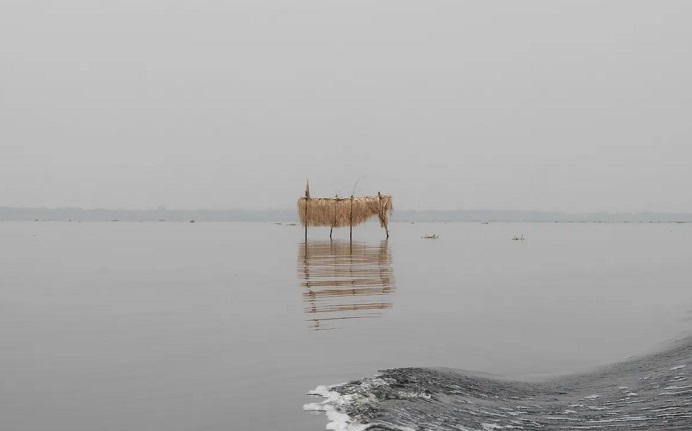Since a good majority of humans mostly seek an overarching purpose in life, they, therefore, attach themselves to values, belief systems, interests, or causes wrapped up in the pursuit of a higher power, this serves as a strong reason for many to seek God through the institution of religion.
There are varying numbers on this topic when it comes to the population of Nigeria. The United Nations’ World Population Prospects, 2022, puts the projected population of Nigeria in 2023 at 224 million. The religion with the highest followership could be contentious as from both sides, the numbers never match. Christianity and Islam, religions both introduced by Western missionaries (Portuguese 15th century AD) and Arab scholars/Jihadists (11th century AD) are the dominant religions.
According to the World Factbook by the CIA, Nigeria is estimated to be 53.5% Muslim, 45.9% Christian, and about 2% other religions or none. This is a huge shift from the 1963 Nigerian census that found that 47% of the population was Muslim, 34% Christian, and 18% other.
Nigeria is constitutionally a secular state and the figures of the followers of the different religions are dynamic and fluid. For instance, in the South West, many who practice traditional beliefs also identify as Christians or Muslims, making the exact figure murky and not easy to gather.
Today one can sight holy shrines in different places, especially in Southern Nigeria. Due to the influence of the two dominant religions and the continuous depreciation of the African religion, many people do not subscribe to it openly but will consult a native doctor, Ifa diviner, dibia, aladura secretly for solutions and succor to their problems.
Ancestors were fervent worshippers
Victoria Island, an affluent neighborhood, the main center of business and the financial heart of Lagos and Nigeria as a whole was a collection of small villages with numerous shrines under the jurisdiction of the Oniru chieftaincy family, as recent as 1948. These shrines were destroyed and villages were moved to old Maroko to make space for urban development.
Today, we are witnessing the growth and rebirth of the African traditional religion. Ifa adherents from all over the world visit, Ile-Ife, Oyo, Osun-Osogbo, Abeokuta, and Lagos for their rite of passage into the Ifa priesthood. The colorful ceremonies that go with African traditional religion are also worthy of note. The egunguns (masquerades) of different types make for an amazing carnival-like atmosphere. Osun Festival in Osogbo hosts thousands of devotees from all over the Caribbean, Americas, Europe, and Asia annually.
Ifa traditional beliefs, a way of life of the African ancestry is still strong and it is being reintroduced to many Africans all over again, thanks to the African diaspora and its strong adherents in Nigeria. As a people, it is on us to protect our heritage, promote our roots, and understand and celebrate the ways our ancestors lived. There is strength and pride in having a proper knowledge of one’s history.
Water shrines
Our picture of the week was captured in the Lagos Lagoon, in front of one of the hundreds of fishing villages deep inside Epe. It is a shrine dedicated to the water gods, where fishermen plead for a good catch and a safe return home. Similarly, other fishing communities around the world maintain such traditions. An eye-catching example is that of the Japanese Itsukushima Shrine on Miyajima (literally, “shrine island”). This is perhaps the most famous shrine in Japan, known for its “floating” torii gate. Miyajima Island has long been a holy site in Shinto, and Itsukushima Shrine was built in the 12th century. The shrine, and the Torii gate, are built over water.
Copyright 2025 TheCable. All rights reserved. This material, and other digital content on this website, may not be reproduced, published, broadcast, rewritten or redistributed in whole or in part without prior express written permission from TheCable.
Follow us on twitter @Thecablestyle

